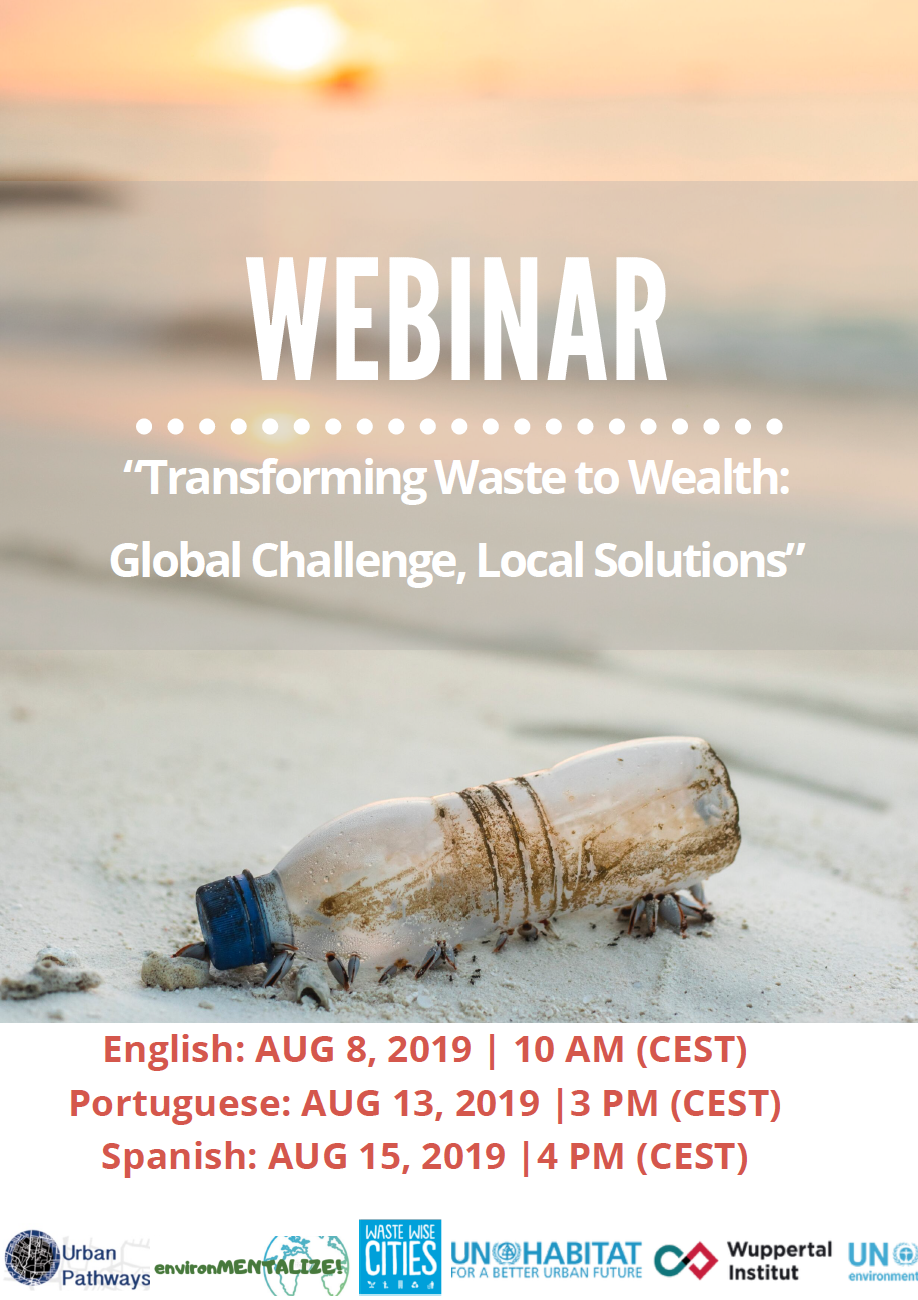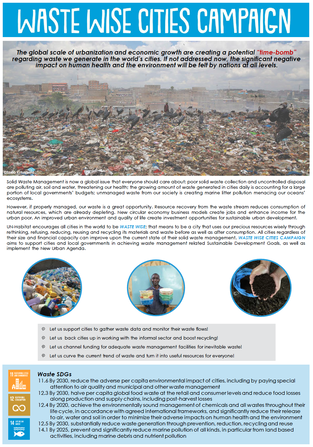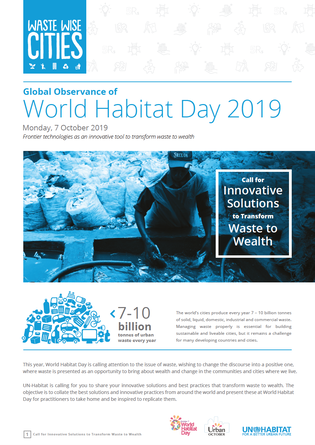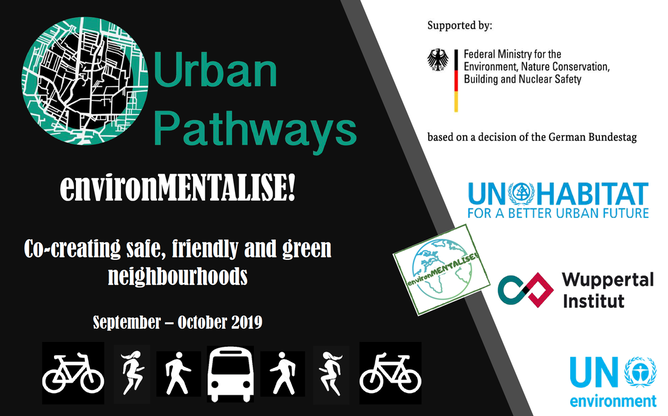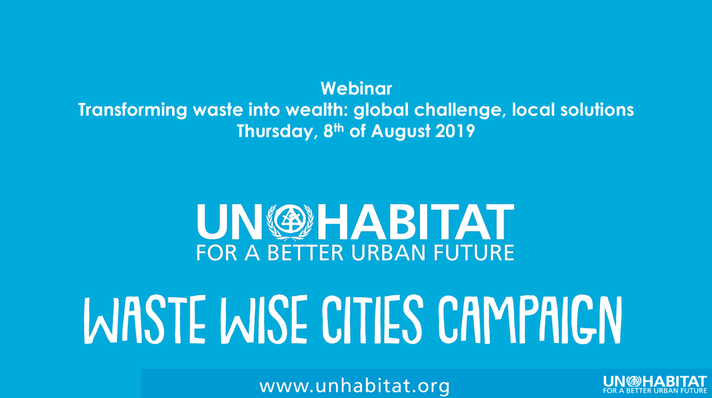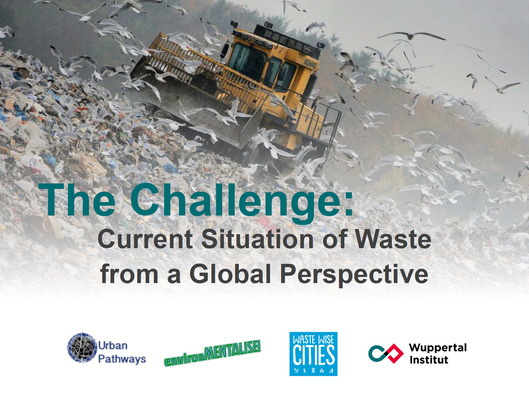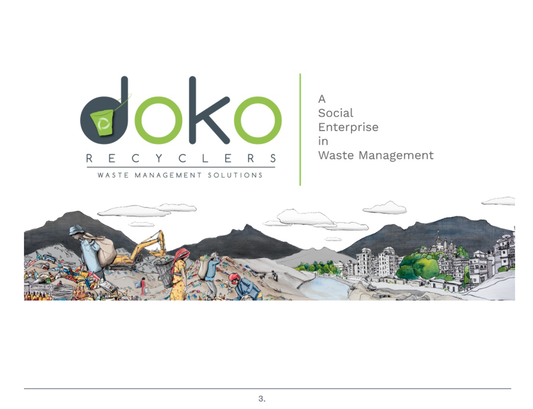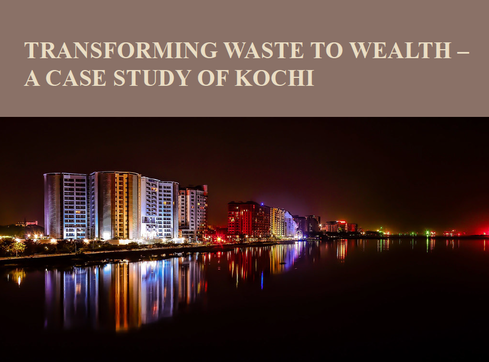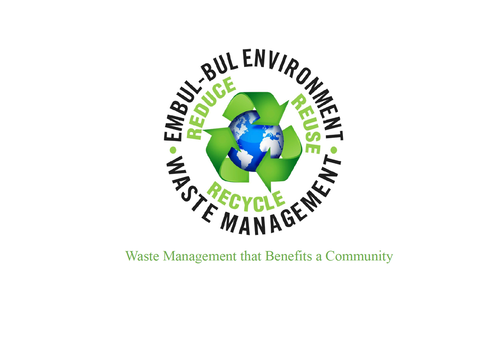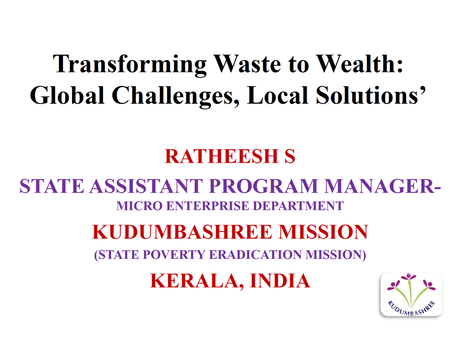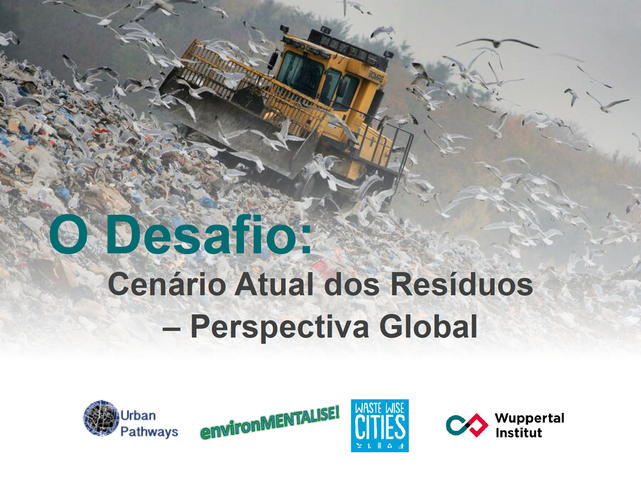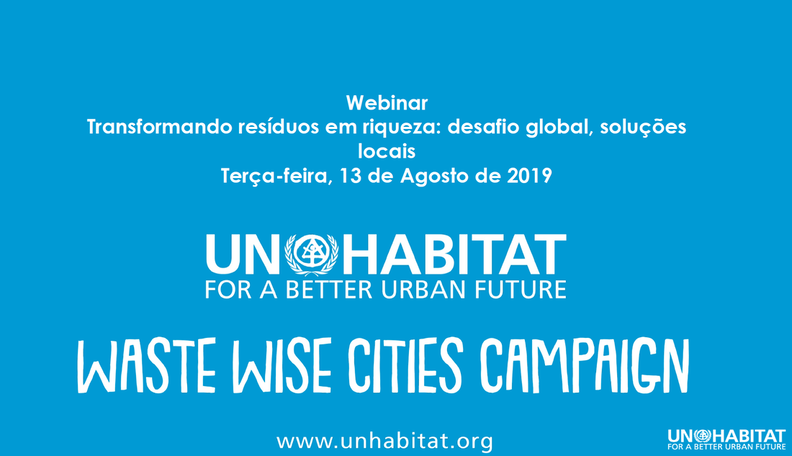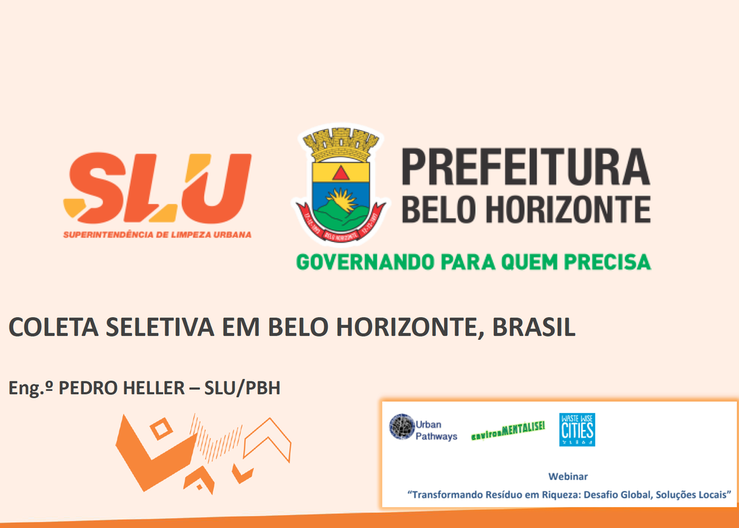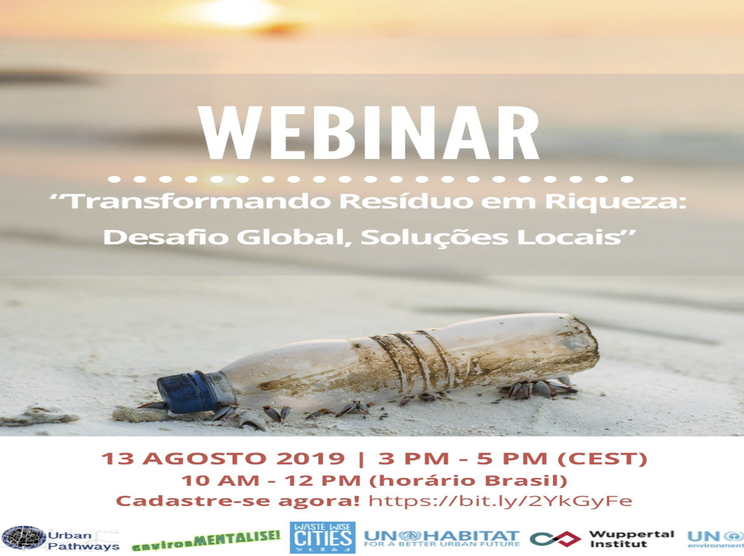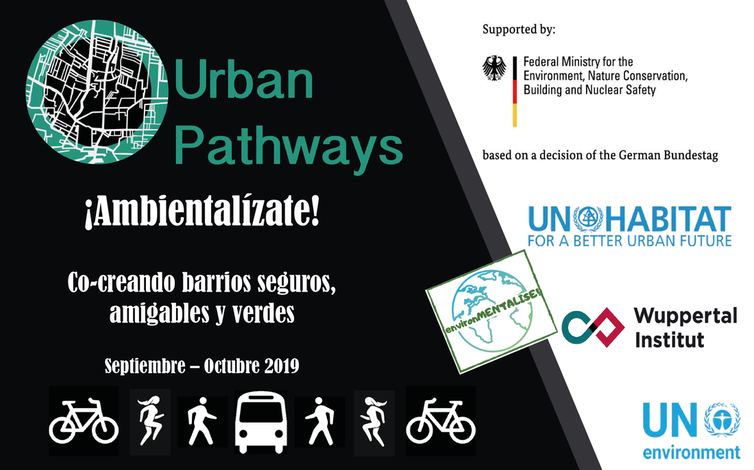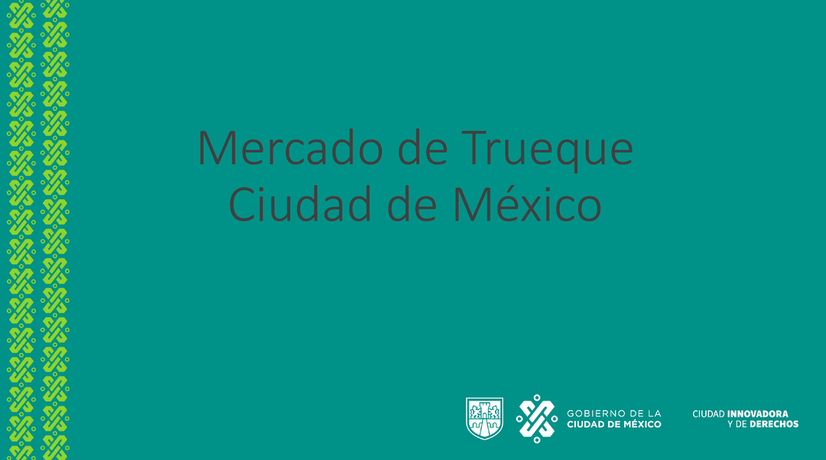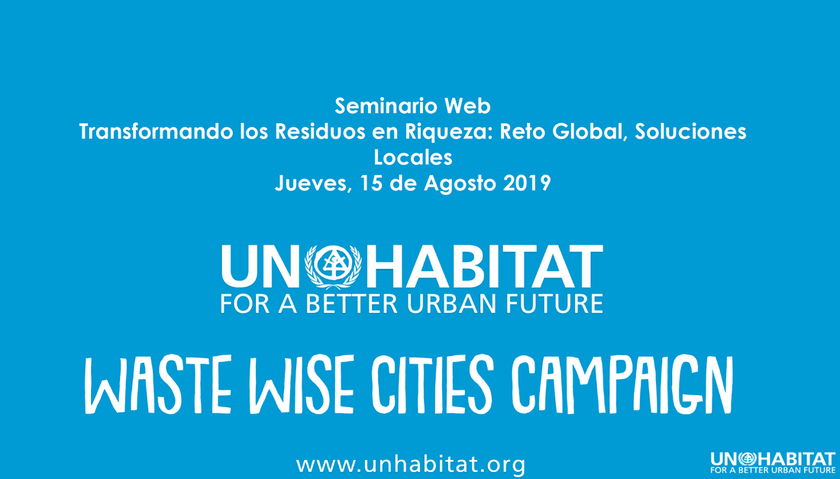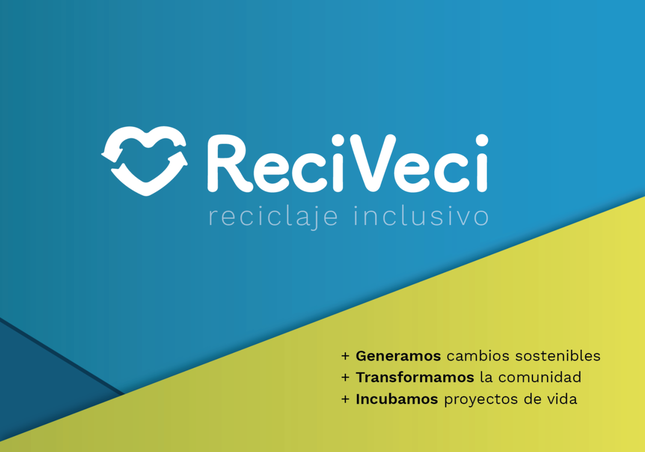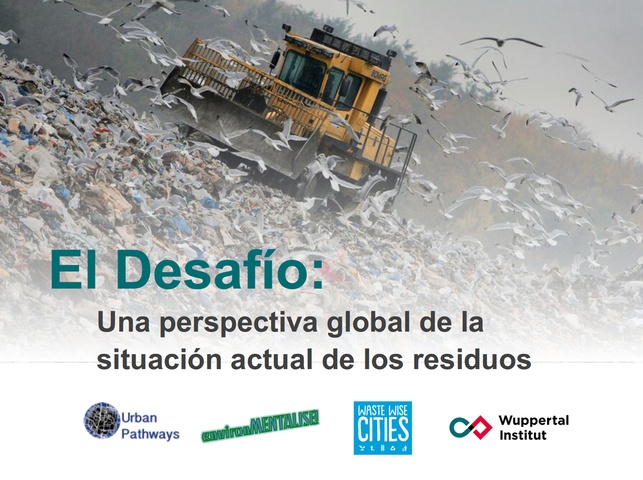|
Webinar
Transforming Waste into Wealth: Global Challenge, Local Solutions English: 8 August 2019, 10 am (CEST) Portugese: 13 August 2019, 3 pm (CEST) Spanish: 15 August 2019, 4 pm (CEST) Cities play a key role in meeting the ambitious climate, sustainability and urban development objectives defined in the Paris Agreement, Agenda 2030 and the New Urban Agenda (NUA) in recent years. Urban areas are not only responsible for 80% of energy consumption and 75% of GHG emissions, but also for 2.1 billion tons of municipal solid waste (MSW) generated worldwide each year. The amount of waste produced by individuals is growing daily and costs for waste management often account for a big share of the local governments’ budget. Moreover, insufficient treatment in uncontrolled dumpsites and open waste burning results in serious health problems, as well as water and air pollution.
These facts reflect consumption patterns and lifestyles in cities that are not aligned with sustainable urban development. In order to improve the current state of waste management, reduce the costs related to its collection and treatment and mitigate its impact on the environment, it is utterly important to raise awareness, put waste management polices into place and implement them. Many cities, small businesses and NGOs have already started this journey and have come up with innovative ideas and initiatives that aim at addressing the challenges and capturing the opportunities of sustainable waste management. In this context, the Urban Pathways Project, funded by the International Climate Initiative (IKI) from the German Ministry of Environment and implemented by the Wuppertal Institute and UN Habitat, has put together the Webinar “Transforming Waste into Wealth: Global Challenge, Local Solutions”. It aims at discussing and sharing best practice examples and knowledge on policy measures and local waste management initiatives among representatives from Latin American, African and Asian municipalities, research institutions, NGOs, and other stakeholders. The webinar will start with an overview of the current situation and the biggest challenges of waste from a global perspective and will continue with the explanation of measures that can be implemented to reduce their impact at the local level. This will be combined with the presentation of innovative local initiatives being carried out in different cities. The Webinar – Co-creating safe, friendly and green neighbourhoods”, launched by Urban Pathways to promote the implementation of actions that contribute to raise awareness about the environmental, health, social and economic benefits of non-motorised transport, as well as of waste reduction. In order to have a greater impact, as well as to generate synergies and learning on a larger scale, this initiative will be carried out in collaboration with regional and global awareness campaigns such as the Mobility Week, which includes the International Car Free Day, the World Habitat Day, the Waste Wise Cities Campaign, the SDGs summit and the Walk and Cycle to School Day. All of them are happening between September and October. |
The webinar, that will will last 1 hour 50 minutes, will be taught in English, Portuguese and Spanish, as the idea is to reach a broad number of cities in developing countries.
• English version: August, 8th 2019 at 10 AM (CEST) (registration link)
• Portuguese version: August, 13th 2019 at 3 PM (CEST) (registration link)
• Spanish version: August, 15th 2019 at 4 PM (CEST) (registration link)
Moreover, in order to share best practice examples across different countries, the initiatives presented will be summarized into an Urban Pathways Factsheet and translated to English, Portuguese and Spanish to be distributed among the participants.
• English version: August, 8th 2019 at 10 AM (CEST) (registration link)
• Portuguese version: August, 13th 2019 at 3 PM (CEST) (registration link)
• Spanish version: August, 15th 2019 at 4 PM (CEST) (registration link)
Moreover, in order to share best practice examples across different countries, the initiatives presented will be summarized into an Urban Pathways Factsheet and translated to English, Portuguese and Spanish to be distributed among the participants.
List of presentationsA) General presentations
1. Introduction to the EnvironMENTALISE Initiative – co-creating safer, nicer and greener neighbourhoods (English / Spanish) María Rosa Muñoz, Lisa Graaf and Shritu Shrestha, Research Fellows at the Mobility and International Cooperation Research Unit of the Wuppertal Institute / Urban Pathways Team 2. Introduction to Waste Wise Cities Campaign and World Habitat Day 2019 (English / Spanish / Portuguese)Nele Kapp, Solid Waste Management Unit, Urban Basic Services Branch, UN–Habitat 3. The challenge: Current situation of waste from a global perspective (English / Spanish / Portuguese) Stefanie Dorneanu and Adriana Marchiori, Research Fellows of the Circular Economy Division of the Wuppertal Institute B) Local Initiatives 4. Doko Recyclers (Kathmandu, Nepal) (English)Kushal Harjani, Co-Founder & CEO 5. Kochi Municipal Corporation (India) (English)Dr. Rajan Chedambath, Director, C-HED, Kochi Municipal Corporation 6. Kudumbashree (Kochi, India) (English)Ratheesh S., State Assistant Program Manager, State Poverty Eradication Mission 7. Embulbul Environment & Waste Management (Ngong, Kenya) (English) Christopher Muriithi, Director 8. Coleta Seletiva (Belo Horizonte, Brazil) (Portuguese)Pedro Gasparini Barbosa Heller, Head, Department of Final Disposal of Waste, Urban Cleaning Superintendence 9. Escola Resíduo Zero (Ilhabela, Brazil) (Portuguese) Tatiana Prestes de Barros Araujo, Social Entrepreneur, Flow Desenvolvimento Sustentável e Consciente 10. ReciVeci (Quito, Ecuador) (Spanish)Paula Guerra, Co-founder of ReciVeci 11. Mercado del Trueque (Ciudad de México) (Spanish)María del Rosario Campos Berumen, Deputy Director of Education for Sustainability, Executive Directorate of Environmental Culture, Environment Secretariat |

